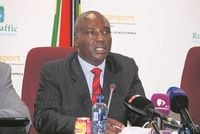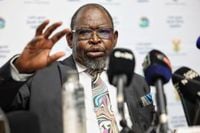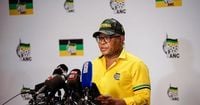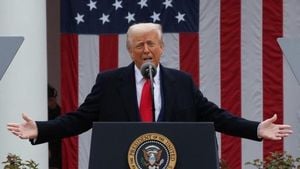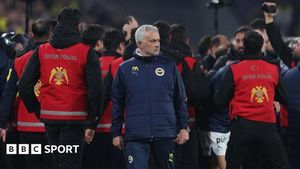The African National Congress (ANC) has successfully secured a majority in the Standing Committee on Finance to adopt a budget framework report that includes recommendations but lacks guarantees for significant changes. This decision follows a contentious debate within the committee, where opposition parties, notably the Democratic Alliance (DA) and the Economic Freedom Fighters (EFF), voiced their strong objections to the proposed budget, particularly concerning a one percentage point increase in Value Added Tax (VAT) planned over the next two years.
In the lead-up to the committee meeting, the DA and ANC engaged in negotiations aimed at finding a compromise to facilitate the passage of the budget. However, reports indicate that the ANC was unwilling to meet the DA's demands for increased control and influence over economic policy, resulting in a failure to reach an agreement.
During the deliberations, ActionSA, a party that has positioned itself as a constructive opposition within the Government of National Unity (GNU), proposed significant amendments. These included eliminating the VAT hike and addressing the Treasury's decision not to adjust tax brackets for inflation. They also suggested granting the finance minister 30 days to revise the budget accordingly. The ANC ultimately supported ActionSA's proposal, leading to a majority vote in favor of the framework.
However, the DA expressed deep dissatisfaction with the outcome. DA Member of Parliament Mark Burke described the situation as “absurd,” arguing that it was contradictory to support the framework while simultaneously proposing amendments to it. The DA labeled ActionSA's decision to vote in favor of the budget as a betrayal of the South African people, stating that the committee adopted the budget without necessary reforms, including the contentious VAT increase.
“By adopting this budget without the reforms and changes that were needed, ActionSA has shamefully shut down the required government spending review,” said DA spokesperson Willie Aucamp. He characterized the ANC's maneuvering to secure budget approval as a “serious infraction” against the principles of the GNU.
The EFF echoed the DA's concerns, criticizing the adoption of the budget as deeply flawed and illegal, asserting that it was achieved through “backroom deals” that disregarded parliamentary procedure. They emphasized that the recommendations made by ActionSA were rendered meaningless since the fiscal framework, including the VAT hike, had already been approved by the committee.
Joseph Maswanganyi, the chairman of the Standing Committee on Finance, clarified in an interview that while the committee had effectively adopted the fiscal framework along with accompanying recommendations, they had not amended it. He noted that they had requested the finance minister to reconsider the VAT issue and explore alternative revenue-raising measures.
ActionSA's involvement in the budget discussions reflects its commitment to representing the interests of South Africans amid rising economic pressures. On March 30, 2025, ActionSA met with the ANC to discuss the 2025/26 national budget, emphasizing the need to protect citizens from excessive taxation and declining service delivery. During this meeting, ActionSA set aside a comprehensive list of budget reforms in exchange for its conditional support of the budget’s passage, which included the explicit requirement to remove the VAT increase and the lack of inflation-based adjustments to income tax brackets.
ActionSA proposed viable alternatives to cover the revenue gap created by these changes, demonstrating that it believes protecting South Africans from unnecessary tax hikes is both feasible and essential. They concluded their meeting with the ANC with the understanding that their conditions would be supported in a manner ensuring the committee’s report directed the finance minister to remove these tax increases.
As the political landscape evolves, the outcome of this budget debate has significant implications for the future of the GNU. The ANC has indicated that the results of the committee meeting might necessitate a restructuring of the coalition, raising questions about the stability of the current government.
Meanwhile, the DA continues to advocate against the VAT hike, asserting that it will burden already strained households. They argue that the government should prioritize fiscal responsibility and transparency, rather than adopting a budget that lacks necessary reforms. The DA's position has been clear: they will not support any budget that includes a VAT increase.
On the other hand, the Patriotic Alliance has expressed its intention to vote in favor of the budget, with spokesperson Steven Motale expressing hope that the GNU can overcome the current hurdles together. Good Party leader Patricia de Lille also signaled her party's support for the budget, noting that the VAT hike should be interpreted alongside the National Treasury's efforts to mitigate its impact on the poor.
Rize Mzansi leader Songezo Zibi stressed that rejecting the budget outright is not a viable option for any political party. He emphasized the importance of submitting proposals to assist the finance minister in producing an effective budget, suggesting that if the VAT hike remains, it should only be in place temporarily until adjustments can be made.
The Standing Committee on Finance's decision to adopt the fiscal framework and refer it to the National Assembly for approval marks a pivotal moment in South African politics. As the matter progresses to the National Assembly on April 2, 2025, all eyes will be on how the various parties navigate these contentious issues and whether they can find common ground amidst their differences.
